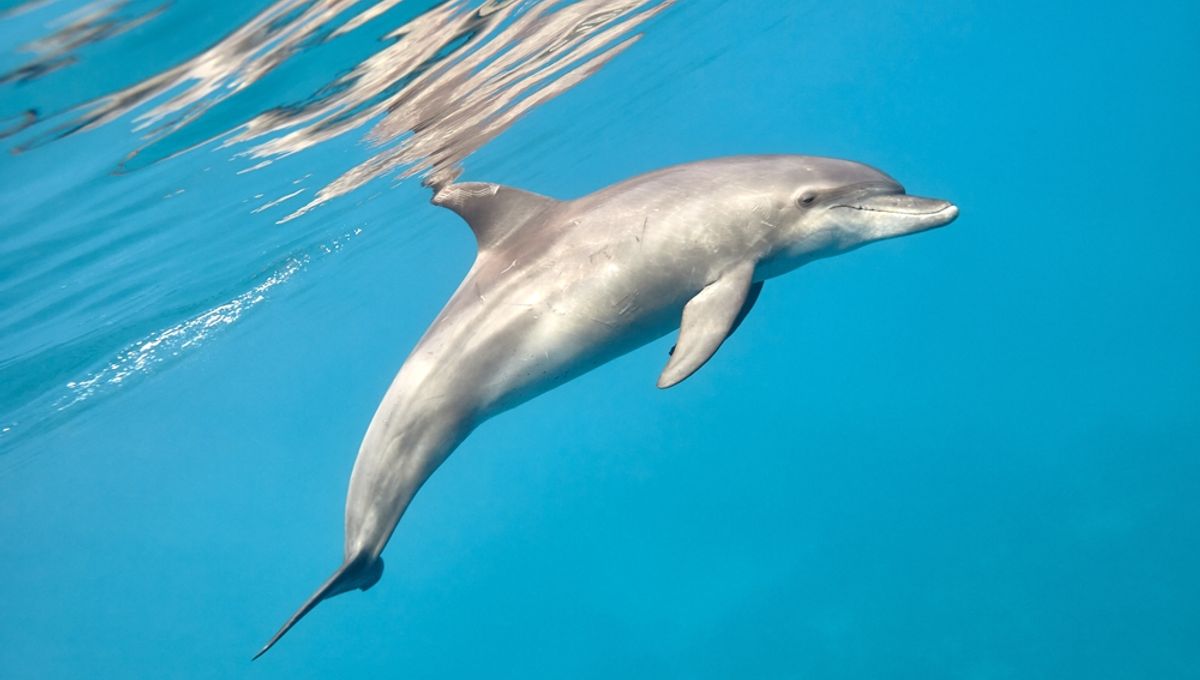
While the average person has 32 teeth, some species of dolphin possess as many as 240. Why so many? Not all species are quite so lucky – Risso’s dolphins only have four to 14 in their lower jaw. However, scientists have suspected dolphins’ teeth are for more than just munching for some time. Now, new research suggests it may have something to do with echolocation and may even help dolphins hear underwater.
A team of Japanese researchers investigated the structure and function of the tissues that surround the teeth of different species of dolphin, including bottlenose and striped dolphins, and compared them to those of other animals. The findings reveal a set of differences that set the dental structures of dolphins apart from those of other mammals. For example, the bone that holds the teeth (known as the alveolar bone) is spongier than those found in other animals. What’s more, the sockets holding the teeth in dolphins are unusually large and the teeth are looser.
The researchers also found that dolphins possess a unique ligament structure – like other mammals, fibers in the inner layer spread out from the root of the tooth; however, unlike other mammals, fibers in the outer layer penetrate the spongy bone in a complex way. In between the two layers, there were thick bundles of long nerve fibers that are again unique to dolphins. Interestingly, some fibers end in structures that look like sensory receptors and allow electrochemical signals to travel through the fibers at a quicker pace.
Taken together, these morphological features suggest dolphins’ teeth serve a sensory purpose, enabling the animals to detect changes in their environment – in a similar fashion to whiskers on a cat. Ryo Kodera from Tsurumi University in Japan told New Scientist the long fibers show “significant tooth mobility” and the thick nerve bundles indicate “heightened sensitivity to tooth movement.”
While the findings do not conclusively say what sense these physiological differences might affect, Kodera suggests it could help dolphins hear better underwater. He told New Scientist, “Our findings support the hypothesis that dolphins utilize their teeth as part of an advanced sound reception system.”
Underwater hearing is not the only superpower dolphins possess – recent research suggests bottlenose dolphins have a “seventh sense” and can detect electrical currents better than platypuses (though not quite on the level of sharks and rays!).
The study is published in the journal The Anatomical Record.
Source Link: Do Dolphins’ Teeth Help Them Hear Underwater?